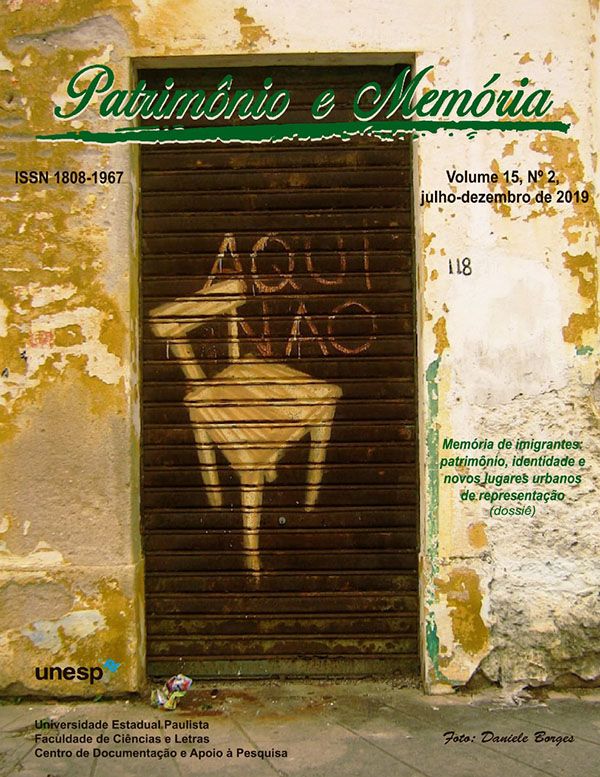Los procesos de inmigración que forjaron la cultura tradicional venezolana
DOI:
https://doi.org/10.5016/pem.v15i2.3269Palavras-chave:
Movimientos de inmigración, Aculturación, Transculturación, Legados ancestralesResumo
El presente trabajo recoge procesos de la cultura, coalición, atributos, cualidades que distinguen y determinan colectividades. Caracterizan rasgos que cultivan facultades humanas dentro una sociedad, identifican procesos que han desarrollado movimientos de inmigración en Venezuela, que forjaron la cultura tradicional de suma importancia desde la época precolombina. Es importante señalar que a pesar de estos impactos sociales, las sociedades y comunidades originarias venezolanas han mantenido unidas, trasmitiendo legados ancestrales, preservando valores culturales patrimoniales a través de los tiempos. Las características principales de los pueblos indígenas originarios, se centraba en su sistema cosmogónico, precedidos por costumbres y tradiciones milenarias. Los aportes europeos consecuencia de proceso de conquista y colonización, están antecedidos por periodos de aculturación y transculturación. El esclavizado africano tras sufrir penurias y calamidades fue arrancado de tierras natales. Estas tradiciones culturales enraizadas entre tres herencias ancestrales, aborígenes, inmigrantes europeos y africanos mantienen la identidad e idiosincrasia del sentir venezolanista.
Referências
ANDRADE J.; Marcos. De la trata a la esclavitud. Caracas: Ipasme 1999.
CARVAJAL, Moraima. Ensayo sobre políticas culturales: planificación y gestión de proyectos de animación sociocultural. Caracas: Colson, 2001.
CRESPO, Marta. Guarenas: costumbres y tradiciones. Guarenas: Alcaldía del Municipio Plaza; Ediciones HC16; S.R.L, 2000.
CRESPO, Marta Y. San Pedro hizo el milagro: folklore y tradiciones guareneras. Guarenas: Asociación Civil Cultural Curupáo; Ediciones HC16; S.R.L., 2005.
DIETER, Hanns. Venezuela: tierra de índios – historia de nuestros indígenas, su origen, sus migraciones, sus herencias y sus imágenes. Ciudad Bolívar: Ediciones, 2003.
DONÍS, R. Manuel. La formación territorial del occidente venezolano. Caracas: Academia Nacional de la Historia, 2011. Disponible en: .
DICCIONARIO Encartado. Caracas: Salvat, 2014.
GARCÍA, Jesús. Caribeñidad. Guarenas: Fundación Imprentas Ministerio de Cultura 2007
GUERREIRO, Aníbal et alii. Aportes culturales a la venezolanidad. Caracas: Ipasme, 2004.
HURTADO, Nina et alii. Guía pedagógica Kariña: para la educación intercultural bilingüe. Caracas: Editorial Arte, 2010.
LÓPEZ G. José. Dos defensores de los esclavos negros en el siglo XVII. Caracas: Books Blog, 1982.
MANRIQUE, Trina A. Ensayo sobre redes sociales y culturales: papel para la discusión en el congreso de redes culturales. Caracas: Ipasme 2000.
MARCANO Andrés Procesos culturales. Caracas: Monte Ávila, 2001
MARÍN, Juan C. El ritmo afrodescendiente en Yaracuy. Guarenas: Fundación Imprentas Ministerio de Cultura, 2006.
RAMOS, José. Resonancia de la africanidad. Caracas: Ipasme, 2006.
MONTERO, Maritza. Ideología, alienación e identidad nacional. Caracas: Biblioteca EBUC, 2004.
MOSONYI, Esteban Emilio. Identidad nacional: culturas y populares. Caracas: Enseñanza Viva, 2007.
ORTIZ, Fernando. Del fenómeno social de la transculturación y su importancia en Cuba. In: Contrapunteo cubano del tabaco y el azúcar. La Habana: Editorial de Ciencias Sociales, 1983, p. 1-6.
RAMÓN Y RIVERA, Luís F. La música folklórica de Venezuela. Caracas: Monte Ávila, 1985.
RODRÍGUEZ Daniela. Transculturación: características, causas y consecuencias. Revista Javeriana, p. 11-30, 2019. Disponible en: .
SANOJA, Mario; VARGAS, Iraida. Razones para una Revolución. Caracas: Monte Ávila, 2004.
Downloads
Publicado
Como Citar
Edição
Seção
Licença
Copyright (c) 2019 José Alejandro Maestre

Este trabalho está licenciado sob uma licença Creative Commons Attribution 4.0 International License.
Todo o conteúdo do periódico, exceto onde está identificado, está licenciado sob uma Licença Creative Commons do tipo atribuição BY.


